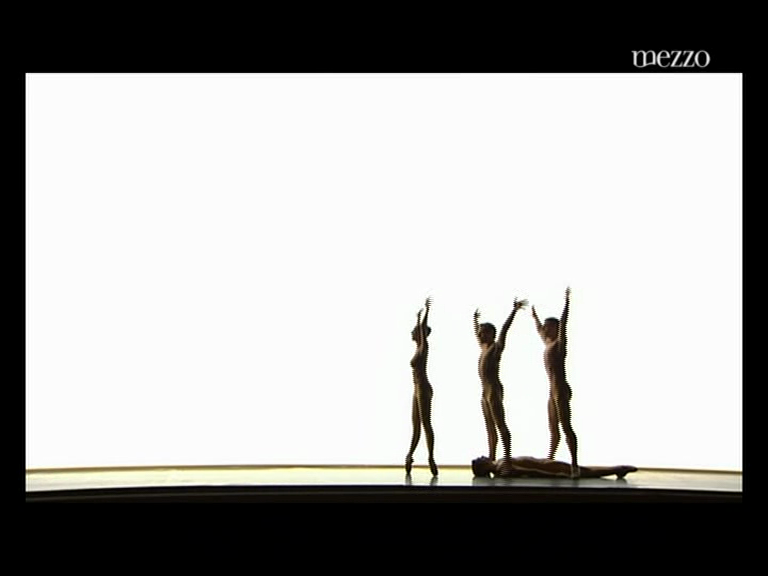Petit’s Proust
Go out of your way to see Roland Petit’s Proust. (Reviewed here, sold here, shared here).
The second and third numbers are weak (the female of the first pas-de-deux has technical expertise but, alas, a grenadier’s lack of grace, and the solo lead of the third tableau — the girl at the beach — has problems keeping her balance), but the rest is Opera-de-Paris-perfect. (In what must surely among the world’s most blatant acts of hubris, the male dancer in La regarder dormir pretends to lose balance and — doesn’t).
A tableau entitled Young girls in bloom confuses girls and flowers rather well:
(Ah…. forgive me. My old weakness for girls in negligee is perhaps too obvious).
There is a “modern”-like tableau in which a quartet dances in the nude, on a dark stage against a back-lit white screen, which makes them look like copper-and-ebony puppets in a shadow-puppet theater — their bodies are so perfectly beautiful one’s mind refuses to believe that they are real people:
In another tableau, the ridiculous (and homo-sexual) Baron de Charlus does a hilarious seduction dance, full of flickering hands and weird jumps:
A deeply moving, homo-erotic pas-de-deux — a troubled relationship — is perhaps its highlight:
It’s the sort of art the French do very well: a series of abstract tableaux, loosely strung together, connected by at best a tenuous thread (in this case, Proust’s novel — to which the title of each tableau refers — which itself is just this sort of work). It functions a bit like a Rorschach Test — or the Tarrot — the viewer’s mind is free to roam about the work and draw out of it its own meanings — or happily dwell in a world with none. An overarching idea does introduce a note of sadness: the French, I once said, are saudade-blind, but Roland Petit apparently isn’t: the ballet opens with a glorious salon scene and ends with a dark vision of the same salon as a kind of dance macabre of the dead and dying: the end of La Belle Époque and all that; but those who find the literal idiom (in which everything is made plain) offensive (because disrespectful of their intelligence) will be happy to know the effect is not too heavy handed.
The last decade has seen many outstanding productions at the Opera Ballet: ballet, it would seem on the face of it, is in better shape than opera.
























Recent Comments